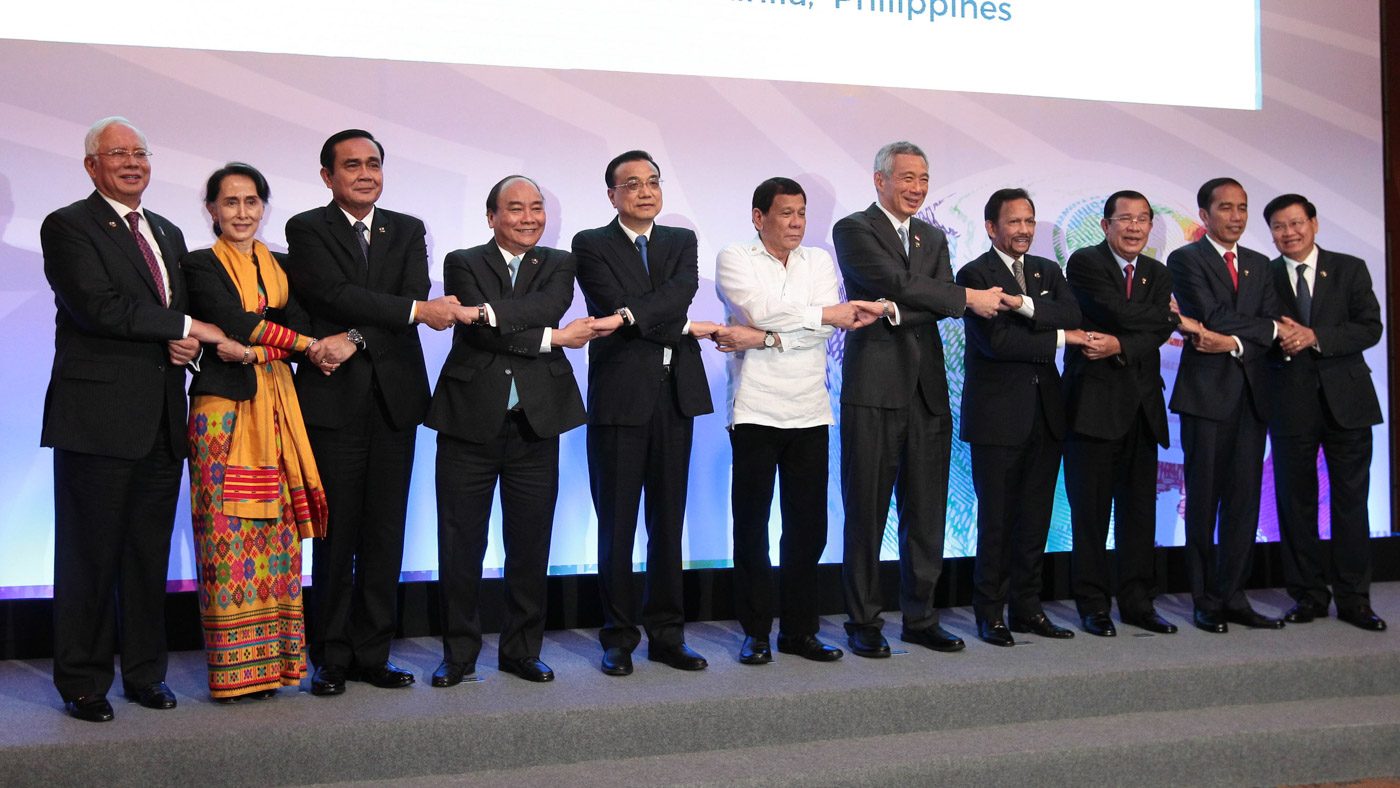SUMMARY
This is AI generated summarization, which may have errors. For context, always refer to the full article.

MANILA, Philippines – Malacañang said on Thursday, November 16, that it does not see how the landmark legal victory of the Philippines against China can be included in the Code of Conduct to be negotiated by China and Southeast Asian countries.
Presidential Spokesman Harry Roque said in a Palace press briefing that because the ruling is only binding for the two countries involved, it has no place in a code that will apply to all other claimants, which include Vietnam, Malaysia, Indonesia, and Brunei.
“I don’t see how it will in fact figure in the Code of Conduct because code of conduct is what it is. And as I said, the arbitral ruling is binding on China and the Philippines only,” said Roque.
Roque, who previously taught international law, said there is “technically speaking, no jurisprudence” in international law thus the Hague ruling can’t be used as basis for the Code.
“What the Code could possibly adopt are the principles of freedom of navigation and the principles of overflight,” he said, since these are general principles of international law like the United Nations Convention on the Law of the Sea (UNCLOS).
Rallying point
Malacañang’s statement indicates an unwillingness by the Philippines to use the arbitral ruling to strengthen the Code of Conduct as protection against China’s aggression in the South China Sea.
The Aquino administration, which had filed the case against China, had intended the arbitral award as a way to get Southeast Asia as a region, and even the rest of the world, to rally against Beijing’s island-building and militarization in the disputed waters.
Asia Maritime Transparency Initiative director Gregory Poling said in July 2016 that the arbitral award is “a victory for all concerned states,” even if the ruling is only binding upon the Philippines and China. (READ: How to enforce Hague ruling? PH counsel explains)
He said the decision’s striking down of the 9-dash line, China’s demarcation to claim the South China Sea, means the 9-dash line “is also illegitimate where it overlaps with the claims of Vietnam, Brunei, Malaysia, and Indonesia.”
Paul Reichler, the Philippines’ lead counsel against China, also said in July 2016 that the support of other coastal states in the region is crucial.
“If these other states stand up for their rights in the way that the Philippines has done, you’ll get the situation where all of the neighboring states are insisting that China withdraw its illegal claims and respect their legal rights which have been defined and recognized and acknowledged today, because those states have the same rights as the Philippines,” he said.
Malacañang’s statement is consistent with the Duterte administration’s line that it wants to keep the arbitral ruling between the Philippines and China. This is also the belief held by China.
China believes that settling the South China Sea dispute should be limited to the “directly concerned countries.”
China opposes the “internationalization” of the dispute – which means bringing it to international fora like the ASEAN meetings.
True enough, there was no mention of the Hague ruling during the recently concluded ASEAN Summit hosted by the Philippines.
Instead, ASEAN and China announced they would start talks on the South China Sea Code of Conduct. – Rappler.com
Add a comment
How does this make you feel?





There are no comments yet. Add your comment to start the conversation.